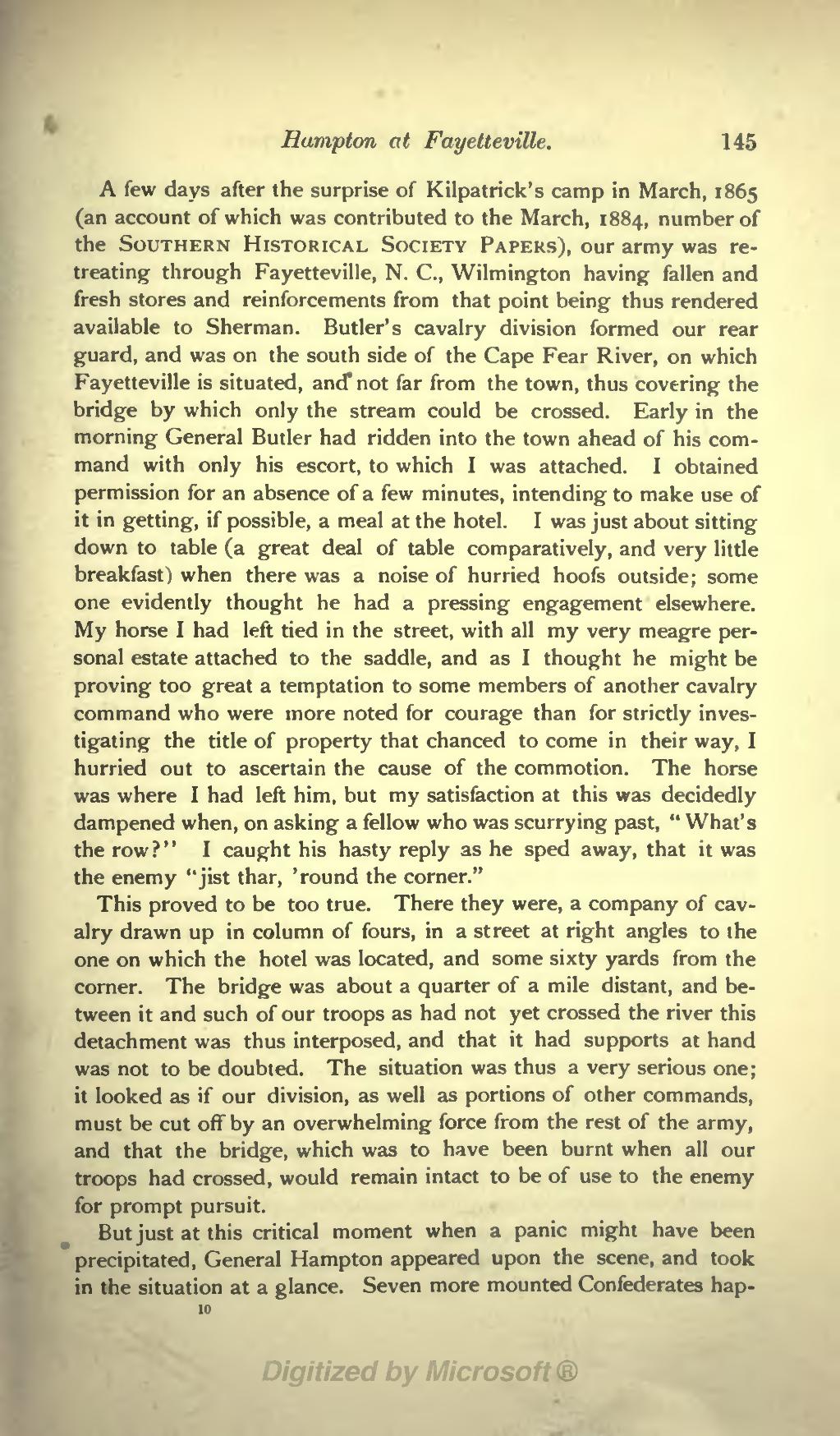Hampton at Fayettevitte. 145
A few days after the surprise of Kilpatrick's camp in March, 1865 (an account of which was contributed to the March, 1884, number of the SOUTHERN HISTORICAL SOCIETY PAPERS), our army was re- treating through Fayetteville, N. C., Wilmington having fallen and fresh stores and reinforcements from that point being thus rendered available to Sherman. Butler's cavalry division formed our rear guard, and was on the south side of the Cape Fear River, on which Fayetteville is situated, and* not far from the town, thus covering the bridge by which only the stream could be crossed. Early in the morning General Butler had ridden into the town ahead of his com- mand with only his escort, to which I was attached. I obtained permission for an absence of a few minutes, intending to make use of it in getting, if possible, a meal at the hotel. I was just about sitting down to table (a great deal of table comparatively, and very little breakfast) when there was a noise of hurried hoofs outside; some one evidently thought he had a pressing engagement elsewhere. My horse I had left tied in the street, with all my very meagre per- sonal estate attached to the saddle, and as I thought he might be proving too great a temptation to some members of another cavalry command who were more noted for courage than for strictly inves- tigating the title of property that chanced to come in their way, I hurried out to ascertain the cause of the commotion. The horse was where I had left him, but my satisfaction at this was decidedly dampened when, on asking a fellow who was scurrying past, " What's the row?" I caught his hasty reply as he sped away, that it was the enemy "jist thar, 'round the corner."
This proved to be too true. There they were, a company of cav- alry drawn up in column of fours, in a street at right angles to the one on which the hotel was located, and some sixty yards from the corner. The bridge was about a quarter of a mile distant, and be- tween it and such of our troops as had not yet crossed the river this detachment was thus interposed, and that it had supports at hand was not to be doubted. The situation was thus a very serious one; it looked as if our division, as well as portions of other commands, must be cut off by an overwhelming force from the rest of the army, and that the bridge, which was to have been burnt when all our troops had crossed, would remain intact to be of use to the enemy for prompt pursuit.
But just at this critical moment when a panic might have been precipitated, General Hampton appeared upon the scene, and took in the situation at a glance. Seven more mounted Confederates hap-

